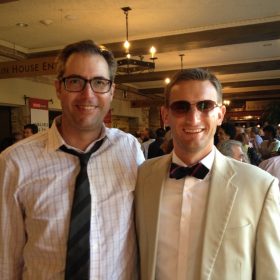What were your favorite philosophy courses at UCLA?
- Society and Morals (150)
- Intro to Ethics (22)
- Language (127A)
Are there any philosophical issues, readings, or topics that have stayed with you since graduation?
Political philosophy and the intersection of philosophy and the law.
Have you read any philosophy recently that you would recommend?
- Samuel Scheffler, Death and the Afterlife
- Seana Shiffrin, Speech Matters: Lying, Morality and the Law
- John Rawls, A Theory of Justice (still amazing)
What was your first job or endeavor after UCLA?
After UCLA I went to law school. After law school, I was a litigator and corporate bankruptcy attorney at Irell & Manella LLP.
What lessons or skills from philosophy do you use in your career?
In my experience, surprisingly few people enter law school (and most jobs) accustomed to the rigorous critical thinking that students are required to practice in UCLA philosophy courses. As a lawyer with a technical and sophisticated practice, I spend most of my day reading arguments in briefs and legal decisions, analyzing them, identifying and evaluating assumptions, and writing arguments (or counter-arguments) based on my evaluation and analysis. Philosophy is worth studying for its own merit, of course, but it also has the benefit of teaching critical thinking skills that lawyers and law students need.
Do you have advice for current students or recent graduates about how to take advantage of and continue their philosophical education?
Chose classes based on the professors that teach them more than on the subject matter. A professor you enjoy can make any subject come alive and you might discover a passion and aptitude in an area that you never expected.
If you want to continue learning, there are many wonderful philosophy lectures posted online. However, you should be picky about what you invest your time in; the online lectures are uneven in quality.


